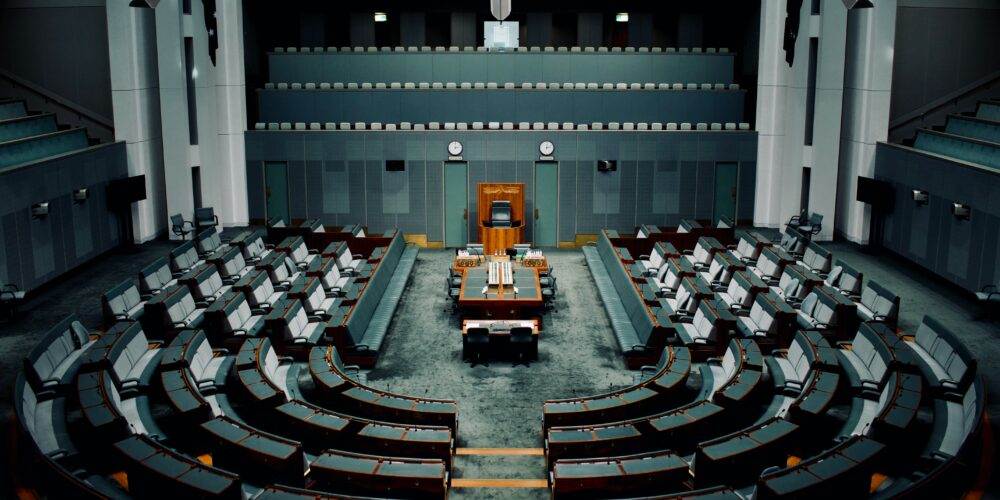They say you don’t fully appreciate your health until something goes wrong.
Equally, many of us might feel that we didn’t fully appreciate our freedoms until they were taken away. Now, we’re hyper aware!
Indeed, it often feels like there’s almost no part of our lives that isn’t subject to government oversight or intervention. Australia is famously considered to be one of the greatest nanny states in the world. From ever-reducing speed limits and ever-increasing numbers of speed cameras, to bike helmet laws, building a shed in the backyard, vacuuming after 10pm and fines for BBQ smoke drifting over to the neighbours, there is no aspect of our lives that the multiple layers of government don’t regulate.
Spearheading these mostly unwarranted and unwanted measures, are those who think of themselves as intellectually superior and capable of knowing what’s best for us. The ever-increasing public service.
We have no less than 2,420,600 public sector employees (as at the end of June 2022). Australia’s total labour force is 13,753,200. That means 15% of the workforce is employed by government – a sector that is renowned for wastefulness and incompetence.
Another way to think of it is that 15% of our workforce are not producing anything that can be used for domestic purposes nor export. Worse, they’re not even self-sufficient. Each of those 2,420,600 employees rely on the other 11.5million for their livelihood.
How much do we pay for this bloated, ineffectual sector? Cop this. The total public sector wages and salaries in 2021-22 came to $209,553.8 million*!
And that’s BEFORE we pay for any buildings or equipment for our hospitals and schools, defence, transport or welfare, let alone our $895 billion debt obligations.
No prizes for guessing how we cover this. You and I pay for it through all the taxes, great and small, obvious and less obvious. To name but a few: Income Tax; GST; Capital Gains Tax; Fringe Benefits Tax; Payroll Tax; Superannuation Tax; Excise on alcohol, tobacco and fuel; Luxury Car Tax; Land Tax; Medicare Levy; Council Rates; Stamp Duty; Pet Registrations. The list goes on. And that’s before we add in a bunch of fines and fees.
You have no say in this. This was never mutually agreed. It is not consensual. This is simply the taking of your private property, that you earned with your time and labour. They are stealing the days, weeks and years of your life.
They are not robbing from the rich to give to the poor. They are robbing from the middle and working class to give to their own ever-growing ranks.
And then there’s the most insidious tax of all. Inflation. After you’ve paid all their wages and supported all their families, they ‘print money’ with the tap of a key, to cover their obligations. That money circulates at the top end first through the Reserve Bank’s dealings with the major banks, superannuation funds and financial institutions. They, and those who work for them, invest in property, shares and other assets, creating increased demand and inflated prices for those assets, making everybody richer and happier.
Well, not quite everybody. The increased money supply slowly trickles down to the rest of the economy as those who’ve benefited most at the top, purchase other goods and services which don’t increase in supply.
No new nail salons open up. The prices at existing salons go up as demand for their time increases.
Farmers don’t increase their crops of oranges. They planted for an expected level of demand for this year and there’s nothing they can do to increase it on short notice. Or maybe they don’t have enough land to plant more trees. The price of oranges goes up.
No new rental housing is built. Rents go up.
Commodities, infrastructure, utilities, up. You get the picture.
All prices rise with the tide, and higher prices mean higher GST on those goods and services. More money to the government.
Investment property prices go up. More Capital Gains Tax to the government.
The price of alcohol and tobacco goes up, more Excise Duties to the government.
They’re paying off their debts and other obligations at your expense, disadvantaging most, those who keep their money in the bank or live pay-cheque to pay-cheque.
Another way to say this is that the purchasing power of your money is continually reduced. Whatever you had left over at the end of the week buys less than it did last week. You may or may not get a wage rise but it’s unlikely to keep up with inflation. And when you do, you move into a higher tax bracket. Did I mention, more money to the government?
It’s not a new phenomenon. This has been happening for time immemorial. $100 today only purchases the equivalent of what $3.34 would have bought in 1913. That’s a 96% reduction in purchasing power. The average house price costs seven times the average person’s wage, versus four times in the 1980s.
All of that keeps you spinning on the hamster wheel to feed their ever-increasing appetites. It’s daylight robbery. Between all the various taxes, around 70% of our income is going to the three levels of government. A substantial portion of the rest, goes to year-on-year compounding interest. If slavery is working for someone without wages, then we are conservatively in the vicinity of 80%+ slaves.
As long as we’re distracted with the idea that choosing a different government will make a difference, they can keep flying under the radar doing what they’re doing.
To add insult to injury, the next step they’ll be taking, as openly announced, is a Central Bank Digital Currency (CBDC). That will allow them to track every purchase, freeze your money if you don’t buy what they approve of, and set an expiry date, as they already have done in China, on using up your hard earned dollars so you’re unable to save for the future. More control. More money to the government.
Needless to say, this is a libertarian’s nightmare and the reason libertarianism is on the rise. Low taxes. Small government. Individual responsibility. Free speech. Maximum personal expression. This level of government overreach is precisely the reason libertarianism exists.
At a practical level however, what can we do about it? The chances of the majority understanding this underlying issue, hidden in plain sight as it is, is two fifths of seven eighths of bugger all.
Enter Bitcoin. On the 3rd January 2009, when the genesis block was mined, the world changed indelibly, forever. Bitcoin cannot be manipulated by government. It cannot be ‘printed’, counterfeited or hacked. No more than 21 million can or will ever be created. It cannot be stolen or frozen, abused or seized. It simply cannot be controlled, and hence YOU cannot be controlled, in the way that cash as we know it, or a future CBDC, can be.
Bitcoin is a peer-to-peer electronic payment system. I can send Bitcoin from my electronic wallet to yours without any knowledge or interference by a bank, Paypal or other third party.
How can you trust me though? A combination of cryptography, blockchain and a decentralised network of nodes across the world, verify wallet addresses and transactions in exchange for a fee paid in Bitcoin as programmed into the original code. This is the astonishing breakthrough the world has been waiting for.
In 1999 Milton Friedman—the free-market economist and Nobel Laureate—predicted something very much like it. “I think that the Internet is going to be one of the major forces for reducing the role of government …The one thing that’s missing, but that will soon be developed, is a reliable e-cash: a method whereby, on the Internet, you can transfer funds from A to B without A knowing B or B knowing A, the way in which I can take a $20 bill and hand it over to you and there’s no record of where it came from.” Bingo.
Perhaps the majority will keep voting for big government. Certainly, the government can keep taxing you, and with their monopoly on violence, can ensure you will never get out of paying those taxes. They cannot however, print it, expand the monetary base and steal from you by stealth by way of inflation.
They cannot stop you saving. Because of its scarcity, with that maximum number of 21 million, it will increase in value and purchasing power rather than decrease as it does when the money supply is continually increased.
With technology improvements in everything from farm equipment and mining processes to the production of consumer goods, prices will come down, as they tend to naturally if there is no false inflation creation by government printing.
As a result, we’re more likely to only spend on the things we need today and hold off for the things we want until next year when they’ll be cheaper. Less GST. Less money to the government. Smaller government.
Houses can be built more cheaply with new materials and processes. Prices come down, rents come down. Less Land Tax and Capital Gains Tax to the government. Smaller government.
Less need to increase wages to keep up with inflation, means fewer people moving into higher tax brackets. Less Payroll Tax and Income Tax incoming. Smaller government.
Not only would government income decrease but so would their expenses. No need to increase pensions and welfare to keep up with inflation, if we live in a healthy, organically deflationary economy. Their costs of energy and public building rents come down. Defence, health, education the same.
Bitcoin has the characteristics of money (durability, portability, fungibility, scarcity, divisibility and recognizability). In fact you could comfortably argue it is the best money that has ever existed. Everything else we have ever used from shells to gold to fiat, have been simply our best approximations at money. Bitcoin is the real deal. It is based on the properties of mathematics rather than relying on physical properties (like precious metals) or trust in central authorities (like the cash we use today).
In short, Bitcoin is the ultimate disruption and the peaceful revolution libertarians have been waiting for. Every day it’s getting easier to buy, hold and spend and you can buy as little as twenty dollar’s worth at a time. Holding it is the ultimate act of defiance and the greatest hope for libertarianism around the world.
*Australian Bureau of Statistics











You have a gift Carri & I’m so glad that you are sharing it with the world.
🧡
What a lovely thing to say Briggs. Thank you for your kindness <3